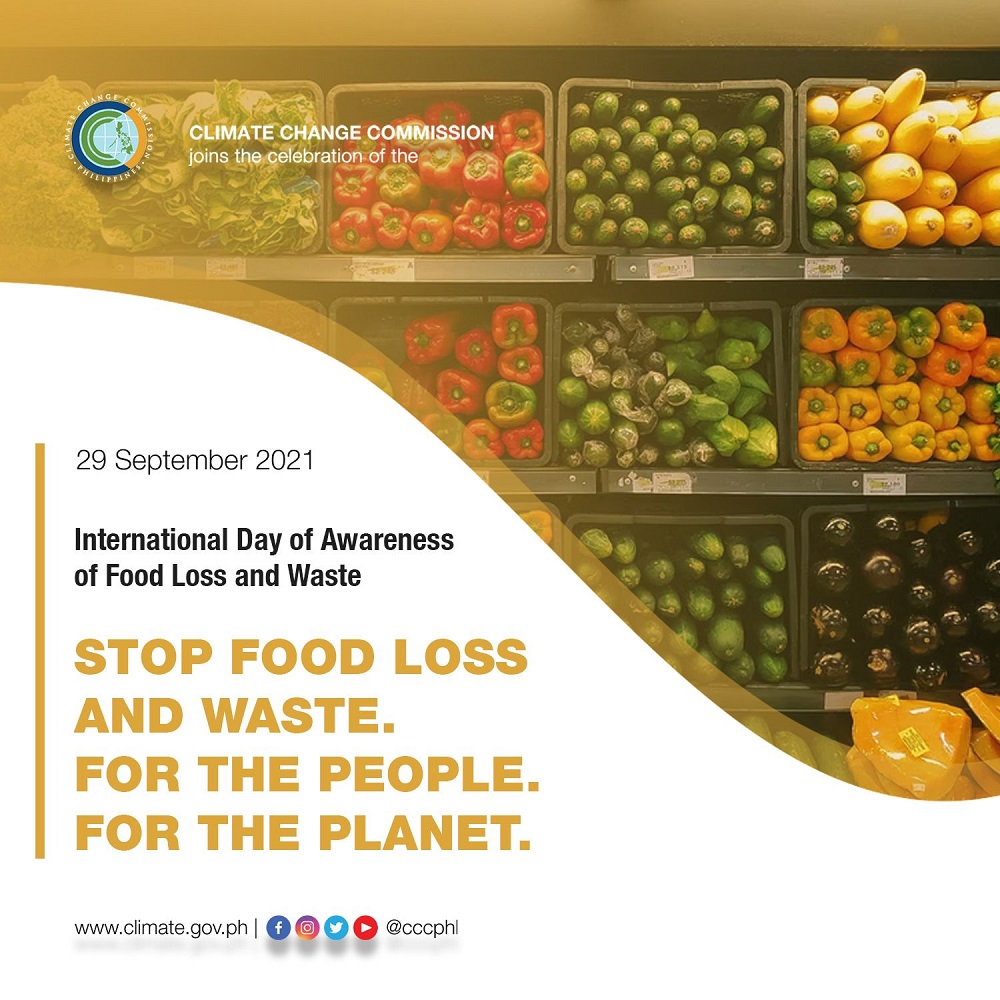
September 27, 2021 Monday

MANILA, 28 September 2021 — In celebration of the International Day of Awareness of Food Loss and Waste tomorrow, the Climate Change Commission (CCC) urges the public to practice sustainable food management to reduce greenhouse gas (GHG) emissions from food loss and waste.
September 29 is designated as the International Day of Awareness of Food Loss and Waste through UN Resolution 74/209, which aims to highlight the food loss and waste problem and their possible solutions. The observance also put the spotlight on the promotion of global efforts towards meeting Sustainable Development Goal 12 or the Responsible Consumption and Production.
Food loss refers to the portion of food that is lost from harvest, but not reaching the retail level. Food waste refers to the portion of a product that is discarded at the consumer or retail level.
The Food and Agriculture Organization of the United Nations (FAO) estimates that globally, around 14 percent of food produced is lost between harvest and retail. An estimated 17 percent of total global food production is wasted in retail and at the consumption level (11 percent in households, 5 percent in the food service, and 2 percent in retail). The food that is lost and wasted accounts for 38 percent of total energy usage in the global food system.
Disposing food loss and waste in landfills emits GHGs, which contribute to climate change. Food loss and waste can also negatively impact the food supply, and influence the cost of food.
This year’s theme, “Stop Food Loss and waste, for the people, for the planet,” calls for the prioritization of action and move ahead with innovation to reduce food loss and waste towards the transformation of the food systems.
The CCC emphasizes that this move will significantly reduce GHG emissions, and will contribute to food security and nutrition, lowering pressure on water and land resources, and can increase productivity and economic growth.
With this, the Commission urges all to save food and reduce food waste by practicing to:
1. Adopt a healthier, more sustainable diet;
2. Buy only what you can consume;
3. Bring home leftovers or share large dishes at restaurants (depending on the COVID-19 status);
4. Refrigerate your leftovers or use it as an ingredient in another meal;
5. Compost your food waste;
6. Support local food producers; and
7. Donate food that would otherwise be wasted.
The CCC said that the COVID-19 pandemic is a wake-up call to transform and rebalance the way our food is produced and consumed. These little changes to our habits – wasting less, eating better and adopting a sustainable lifestyle – if started today, can make a huge impact in setting our communities and the world free from hunger.